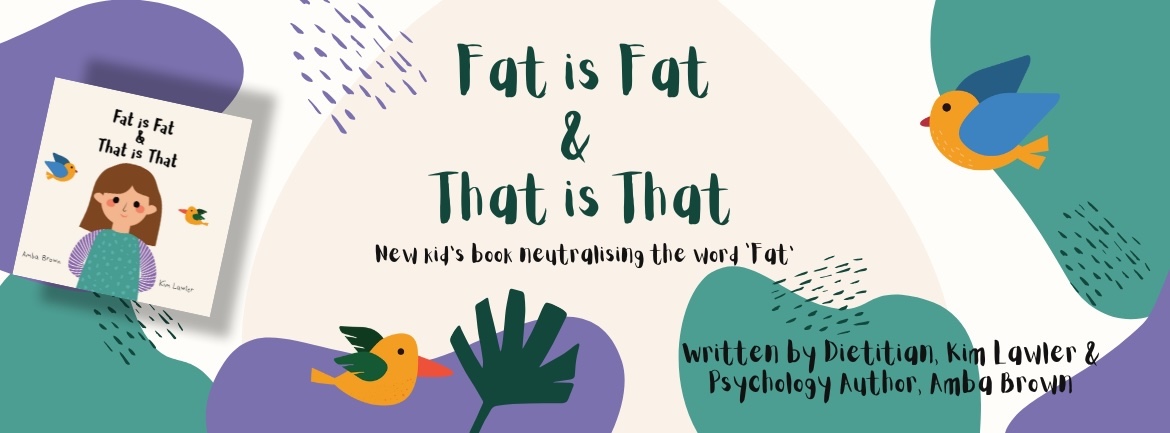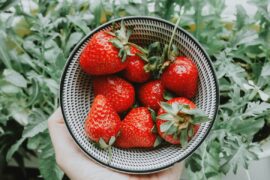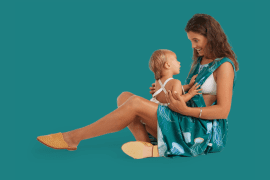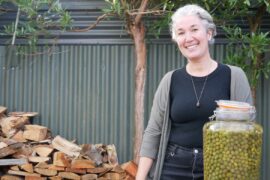The drive: What challenges have you overcome?
Time. A theme likely illustrated in this interview so far.
Also, self-doubt – we know our book is not going to be loved by everyone, but if we waited to have a book like that, we never would have done this.
Another challenge is the opinion of those who believe that neutralising the word ‘fat’ will cause an increase in obesity or that it sends the message that it’s okay to be ‘unhealthy’ by having fat.
Our response being that we are talking about the use and reputation of the word FAT, not encouraging anything unhealthy. But to be honest, this isn’t something that we are particularly worried about, as there is plenty of research these days to support this.
Research actually supports that body weight is not the best measure of health and definitely can’t be the only measure. To start with, the WHO defines health as “physical, mental, and social well-being”, which is so multidimensional.
Studies show that BMI measurement is flawed, and there are many other ways to measure health including blood work (to check cholesterol, BSLs, nutrient levels) and other measures include fitness levels, sleep, bowel movements and mood. If the BMI is used, it needs to be done with a critical lens, as just a part of an overall picture of an individual.
Other research shows health being weight neutral. That health can improve in a weight neutral way, meaning your health parameters can improve or could have always been great even if your weight stays the same or is high. There is a lot of work done on this from the Health At Every Size movement – known in Australia as the Size Inclusive Health Australia.
Also Studies show that genes account for a large proportion of body weight – some people genetically have a bigger body and some people have a smaller body. You can’t change genetics unless via extreme measures. We are talking about accepting the body you have been given and leading a healthy life in that body. We aren’t encouraging unhealthy behaviours. In fact, research suggests that frequent intentional weight loss reflects susceptibility to weight gain, so really if young people are more comfortable in their bodies, there may be less ‘dieting’ and then less unnatural weight gain down the track.

For better or worse: What are the pros and cons of running your own business?
The pressure and the risks are some of the biggest cons, but the pros do outweigh this. We find that being passionate about what we do is the biggest positive. It is also the team that we have built on respect and honesty that has been a huge positive.
Another big positive is role modelling to our children to just start something and give it a go if it is important to you!
We also want to empower parents and remind them that they can make a difference – All is not lost!

Hopes and dreams: What next?
Fat is Fat & That is That is actually part 1 of our series. We have 3 more books that we would love to release soon that all tackle these food and body issues, to help educate both parents and their children.
Our ultimate vision is that the power of the word FAT will be reduced in the next generation. It won’t be the ultimate insult anymore; it will simply be a descriptive word, a component of food and an essential part of our body.
The way we see it is if a kid has grown up in a home where the word FAT is used neutrally without avoidance or a dark shadow, if that child was ever called fat, the impact of that will be less negative and traumatic, compared to a child who has grown up in a home that has instilled fear in the word FAT.
Our kids are given the body they are given. We all have an inherited body size. Of course we can modify things a bit with our lifestyle choices, but all in all you’re given the body you’re given. Research shows time and time again that accepting our body, loving it and treating it well is going to optimise life-long health outcomes, versus always trying to shrink and starve our body to fit within the slim ideal.
Visit fatisfatbook.com to buy their book and follow along at @fatisfatbook on Instagram and Facebook.










